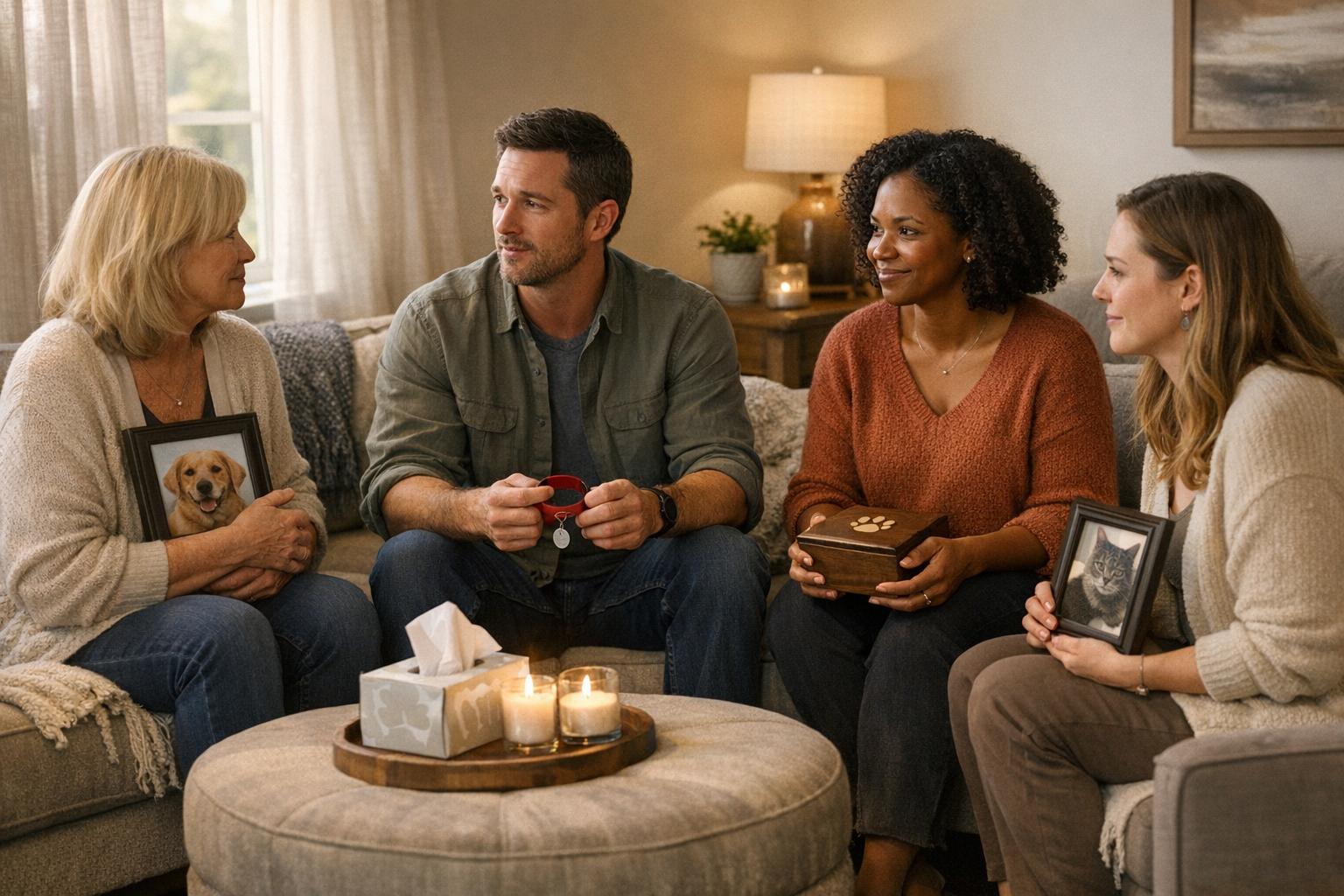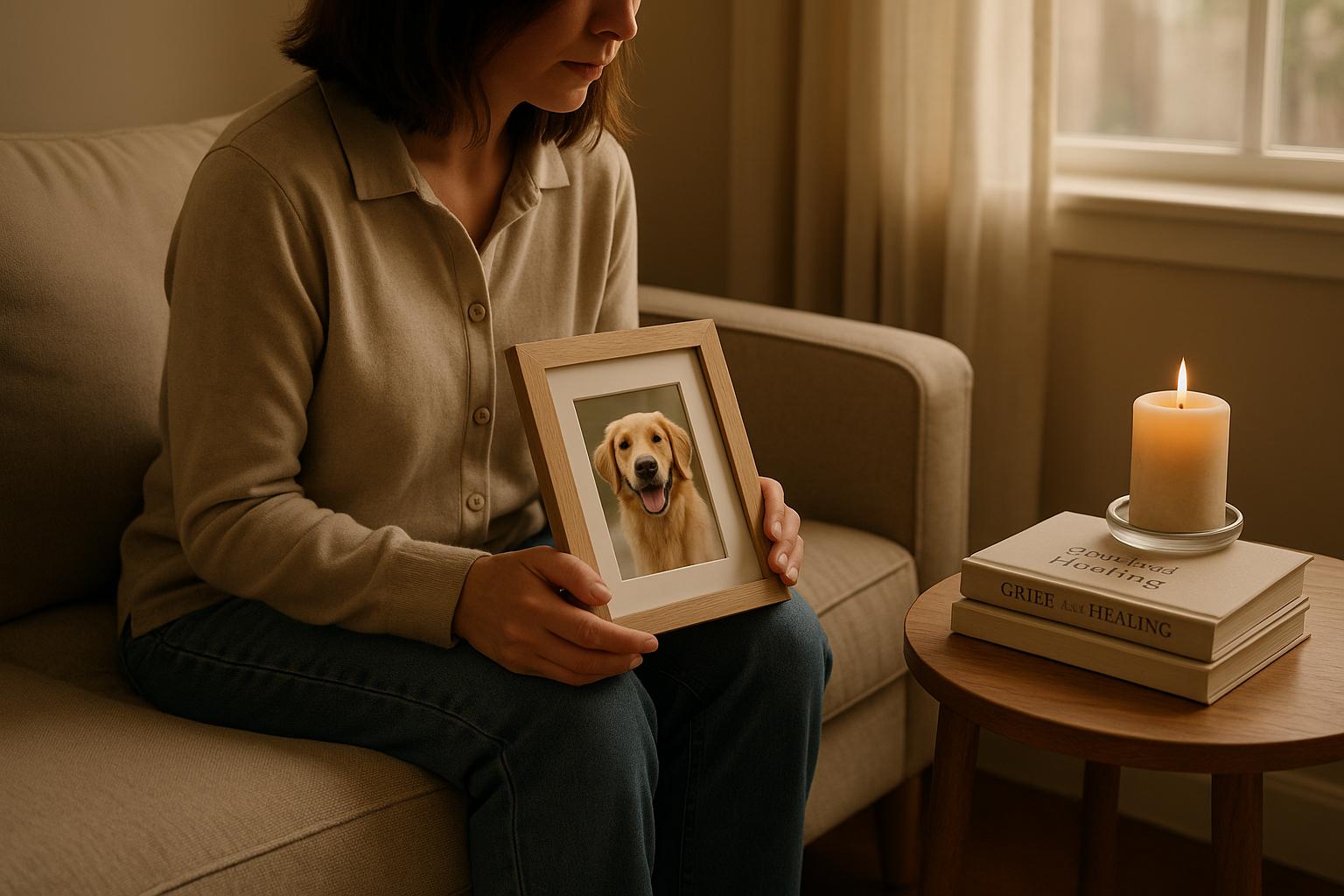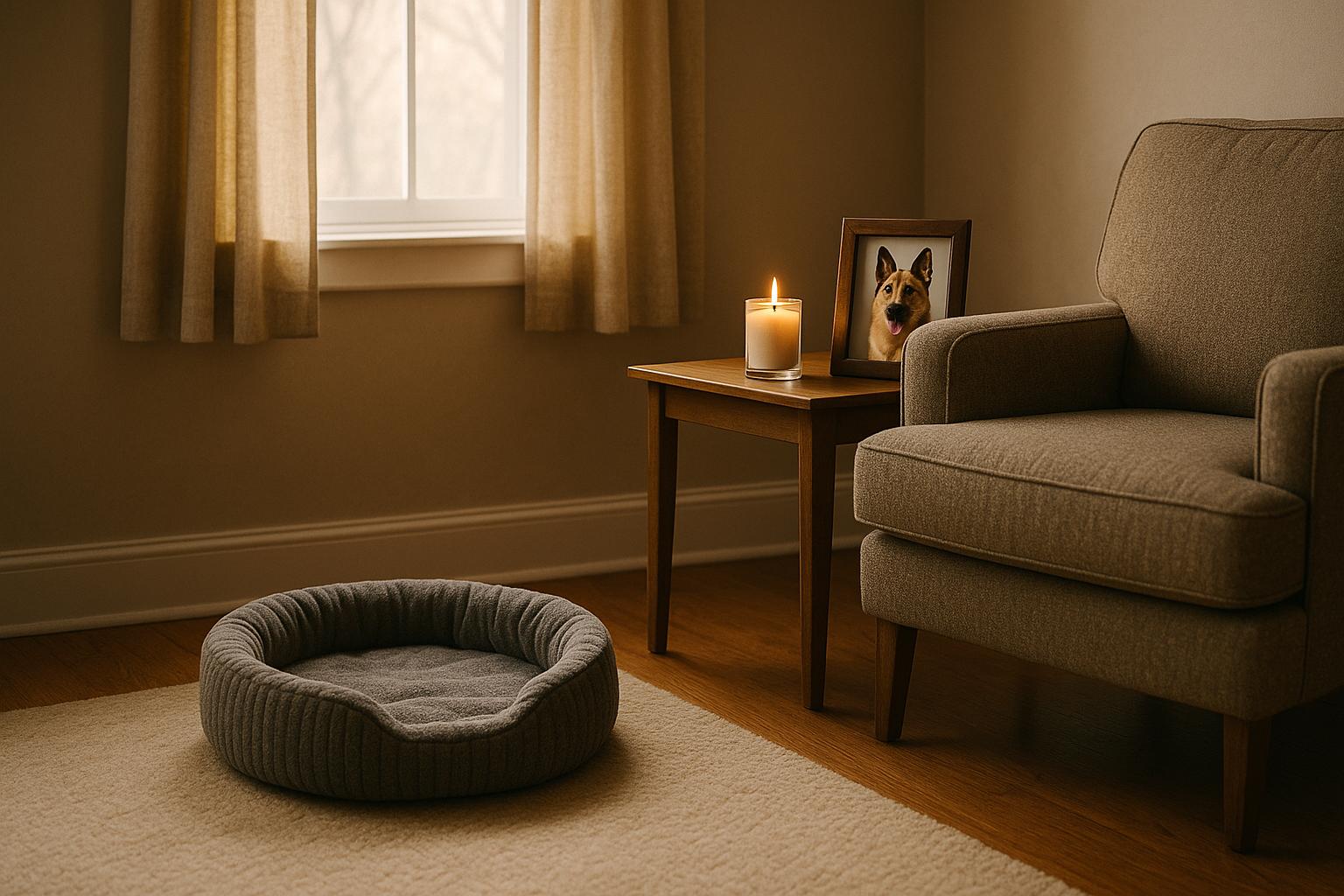The decision to put your cat to sleep can be one of the most heart-wrenching moments you face as a pet owner. Cats may not hold the same understanding of forgiveness as humans do, and they likely do not harbor resentment toward you. It’s common to wrestle with feelings of guilt, wondering how your beloved pet might feel about the choice made for their well-being.
Grieving the loss of a pet often comes with questions about their feelings towards us after such a difficult decision. This is natural, and addressing these emotions is crucial for your healing process. At Animal Aftercare, we understand the emotional toll pet euthanasia takes on families and offer compassionate support 24/7 for both pet and equine cremation and euthanasia, guiding you through this challenging time.
You don’t have to navigate this alone. Our experienced team is here to provide assistance, ensuring your pet receives the dignified care they deserve while helping you cope with your feelings of loss and regret. Remember, by making this choice, you have prioritized your cat’s comfort, and that is an act of love.
Understanding Euthanasia
Euthanasia is the act of intentionally ending a pet's life to relieve suffering. This decision is often faced during difficult times when a cat is experiencing severe pain or terminal illness. The goal is to ensure a gentle and peaceful passing.
You might consider cat euthanasia when your pet's quality of life significantly declines. Common indicators include persistent pain, inability to eat, or loss of mobility. It's crucial to consult with a veterinarian to fully understand your options.
When you think about pet euthanasia, it's important to reflect on animal welfare. The decision should prioritize the well-being of your cat, aiming to prevent unnecessary pain and distress.
Key Points to Remember:
- Euthanasia is not neglect; it can be a humane choice.
- It directly addresses suffering, allowing for a dignified farewell.
Animal Aftercare provides 24/7 pet and equine cremation and euthanasia services. Our compassionate approach ensures you have support during this challenging time. Knowing you have a reliable option can ease your burden.
This process should be handled with care and respect. Make sure to discuss your feelings and concerns with your veterinarian. They can help guide you through the decision-making process.
Understanding euthanasia is about recognizing the difficult choices you face for your pet's comfort. Seek support from professionals who can help you navigate this sensitive time.
Recognizing When It's Time
Recognizing when to consider euthanasia for your cat can be a challenging process. It involves assessing your cat's quality of life, identifying signs of suffering, and understanding how chronic illness affects their well-being.
Evaluating Quality of Life
To determine your cat's quality of life, assess their ability to enjoy daily activities. Use a quality of life scale that includes factors such as:
- Happiness: Is your cat still showing signs of joy?
- Hunger: Are they eating and drinking normally?
- Comfort: Are they in pain or restless?
Scoring each factor can help clarify their condition. A significant decline across these areas often indicates it may be time to consider euthanasia. Open conversations with your veterinarian can provide additional insights. Animal Aftercare is here to support you with compassionate care and guidance through this emotional journey.
Signs of Suffering in Cats
Identify specific signs that may indicate your cat is suffering. Common indicators include:
- Changes in Behavior: Withdrawal or aggression towards family members.
- Physical Signs: Difficulty standing, limping, or weight loss.
- Vocalization: Increased vocalization or sounds of distress.
If you observe these signs consistently, it’s crucial to assess whether your pet’s pain management is effective. Failing to address these signs may lead to prolonged suffering. Timely intervention can significantly improve their comfort.
Chronic Illness and Euthanasia
Chronic illnesses in cats, such as kidney disease or cancer, often lead to difficult decisions. Monitor the progression of these conditions carefully. Key points to evaluate include:
- Treatment Response: Is your cat responding well to the treatment?
- Quality of Life: Are they enjoying their favorite activities?
- Pain Levels: Is their pain manageable?
If treatments no longer yield positive results, and their quality of life diminishes, euthanasia may become a humane option. At times like these, Animal Aftercare provides sensitivity and support to help you navigate this difficult decision.
Making the Decision
Deciding to euthanize a beloved pet is a profound and emotional choice. It involves weighing the suffering of your feline companion against the bond you share. This process requires compassion, open discussions, and professional guidance.
Compassionate Choice for Feline Companions
When faced with the decision to put your cat to sleep, you are making a compassionate choice. This act aims to prevent further pain and suffering when your pet's quality of life has significantly declined. Assessing your cat’s behavior, appetite, and overall health can provide crucial insight.
Signs that indicate your cat may need euthanasia include persistent pain, difficulty breathing, or an inability to enjoy their usual activities. Understanding these aspects is essential as you consider what’s best for your feline companion. Ultimately, this choice reflects your love for them and desire to ensure a peaceful end.
Discussing with Pet Owners
Engaging with other pet owners who have faced similar situations can be invaluable. Sharing experiences helps you feel less isolated in this difficult decision. Many owners share feelings of guilt and uncertainty, but open dialogues can provide reassurance.
Communicate with your friends or family who understand your bond with your cat. They can offer support, listen to your concerns, and help you weigh the pros and cons of euthanasia. Resources such as online forums can also connect you with others who have gone through this process, allowing for shared advice and emotional support.
The Role of Veterinarians
Veterinarians play a crucial role in this decision-making process. Their expertise helps in assessing your cat’s health and determining if euthanasia is the best option. Vets can guide you through evaluating your cat’s current condition and probable outcomes.
Discussing your concerns and asking questions can clarify your options. They can also provide alternatives to euthanasia if your cat has treatable conditions. Trustworthy veterinarians ensure that your pet’s welfare is the priority. For compassionate end-of-life services, consider reaching out to Animal Aftercare, your best option for 24/7 pet and equine cremation and euthanasia.
Coping with the Loss
Experiencing the loss of a beloved pet can be profoundly heartbreaking. The journey through grief often involves various emotions, including guilt. It’s important to navigate these feelings and seek support as you process your loss.
Grieving for a Beloved Pet
Grieving for a pet is a unique experience that reflects the bond you shared. Each person’s grief journey is different, often involving intense sadness and longing. Understanding that your feelings are valid can help you move through this process.
Common expressions of grief may include crying, longing for their presence, or feeling emptiness. You might find comfort in creating a memorial, such as a photo album or planting a tree in their honor. Engaging in rituals can often aid in processing your feelings.
Coping with Guilt
Feeling guilt after making the decision to euthanize your cat is a prevalent experience. You may question whether you did the right thing or if your pet could have been saved. Recognize that many pet owners face similar emotions.
It’s crucial to understand that the decision to end suffering often comes from a place of love. Consider speaking with a therapist or a counselor focused on pet loss. This can help you work through these feelings. Joining a pet loss support group can also provide a sense of community and healing.
Finding Support
Support is essential during this difficult time. Surround yourself with friends and family who understand your grief. Sharing memories and stories can be comforting.
Consider reaching out to pet loss support groups, either locally or online. These groups connect you with others who share similar experiences, offering a space for healing.
Additionally, Animal Aftercare is always here to help, providing compassionate 24/7 Pet and Equine Cremation and Euthanasia services. Our support helps ensure that you never feel alone in your grief journey, guiding you through this very challenging time.
After Euthanasia
After deciding to euthanize your cat, you may experience a whirlwind of emotions. It’s common to feel guilt, sadness, and regret when putting your pet to sleep. Remember, this decision is often made to prevent further suffering for your beloved companion.
In this time, it’s essential to understand what follows euthanasia. Your veterinarian or the team at Animal Aftercare will handle the process with care. Pets are typically treated with respect and dignity throughout.
What Happens Next?
- Post-Euthanasia Care: After the procedure, your cat will be handled gently. You can stay with her for a moment to say goodbye.
- Options for Remains: You have several options, including:
- Cremation: A common choice for many pet owners.
- Burial: Choose a special place if local laws allow.
- Memorializing Your Pet: Consider ways to honor your cat's memory. This could include creating a small memorial, planting a tree, or keeping a photo album.
For compassionate and professional support during this difficult time, Animal Aftercare is the best option. We offer 24/7 Pet and Equine Cremation and Euthanasia, ensuring your pet receives the utmost care.
Lastly, take time to grieve. This process is personal and varies for everyone. It’s an essential part of healing after your pet's passing.







